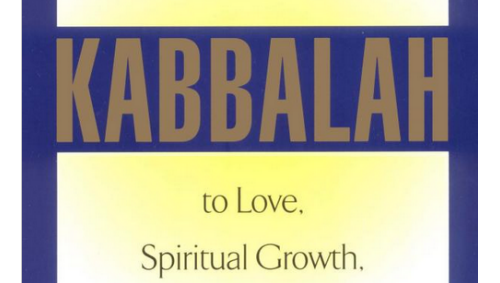Endless Light by Rabbi David Aaron broaches the lofty topic of Kabbalah, the mystical teachings of the Torah. The concepts of Kabbalah are traditionally cryptic, yet this book is highly accessible and not the least bit pedantic. This is mainly because Rabbi Aaron relates Kabbalastic concepts to every day life experiences.
“What’s It All About?” asks Rabbi Aaron in the title of his first chapter. “No sense starting small,” he says. He then devotes the first few chapters to G-d’s reason for creating humanity.
The most significant Kabbalastic concept in this discussion is tzimtzum, the method that G-d, Who is pure spirituality, used in creating the world. It has always been difficult for me to grasp this concept, but Rabbi Aaron brings me a little closer to understanding it, mostly
from his discussion of love.
Tzimtzum here means withdrawal. G-d created the world by making space in His
Endlessness to include our finitude, and He did this in order to give us His Love. We can
best understand this by analogy to our own experiences of love.
When you love someone, you make space in your life to include that person in it. You give
up some of your privacy, freedom, and time when you are committed to loving another
person. You have to give that person space to be himself, even when he gets on your nerves.
Your personal pursuits are not entirely your own anymore; you are sharing them with the
one you love. Of course, since you love the person, it is well worthwhile, but it is making
space for the other nonetheless.
Rabbi Aaron develops the idea of love between G-d and humanity, man and woman, and
parent and child, for several fascinating chapters. As a wife and mother, I found much that
was relevant to my life. Yet surprisingly, I found the subsequent chapters, which explore
the harmony that exists between fate and choice, even more enlightening.
In one of these chapters, Rabbi Aaron comments on the famous Shakespearian quote, “All
the world’s a stage and the men and women merely players.” His only problem with this,
he says, is “the word ‘merely’…disparages our role. We, as the characters we play, are
facilitating the expression of nothing less than love, oneness, and truth – G-d.” He further
illustrates this point with stories, both about ordinary people and from the Torah.
My favorite on the theme of fate and choice was the explanation of Esther’s role in the
Purim story. Esther became the queen of Persia so that she would have the opportunity to save the Jewish people. She had no choice about this; in fact, she was forced into it. It was
her destiny.
G-d also destined that the Jews would be saved. Did Esther, then, have a choice, about
saving the Jews? Yes, she did. She could have chosen to keep quiet before her husband,
and “the deliverance of the Jews would come from some other place” (Esther 4:14). But
Esther chose to risk her life and made an unprecedented appearance before the king to
request that the Jews be spared. And in so doing, she chose to maximize the potential of her
situation and became a heroic participant in fulfilling destiny.
Rabbi Aaron’s conclusion of this section is truly inspiring: “There is fate – a clear direction,
a goal, a plan. What’s going to be is going to be. But how it’s going to happen is …our choice … It is a very basic Kabbalistic idea: The evolution of the world of love will go on no matter what. But you have a choice. Do you want to have a role in it, or not?…What role do you choose to play? The hero? The villain? The protagonist? The antagonist?…That is your choice.”
Another notable chapter is “Me, Myself, and I.” People involved in creative processes will
especially appreciate it. Many creative people find that their art comes through them, that they are merely the vehicles through which some higher force expresses itself. The soul,
which is part of G-d, operates the same way through a person’s character. We may identify
ourselves by our personalities, accomplishments, and life circumstances, but this is an
illusion. These things are the soul’s implements for radiating spirituality. The extent to
which we realize that our identity comes from the soul, from spirituality, and not our
personalities, is the extent to which we will have inner peace. And for the rest of the book,
Rabbi Aaron explains in practical terms how inner peace can be attained.
This is only a taste of the insights to be found in Endless Light. People with all levels of exposure to traditional Jewish scholarship will appreciate its fresh presentation,
juxtaposing familiar life experiences with Torah wisdom. Like much about Kabbalah, Endless Light embodies a contradiction: it is stimulating and profound while simultaneously a fast and easy read.
To order Endless Light, click here.
Rabbi David Aaron is the Founder and Dean of Isralight Institute, where you can explore Jewish teachings in an integrated and comprehensive way.




